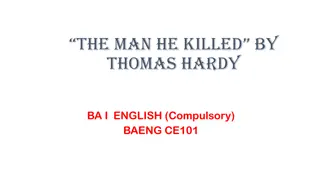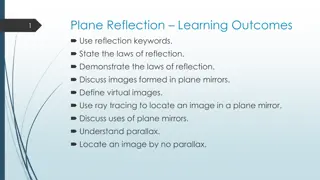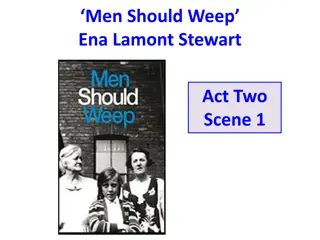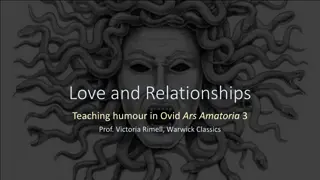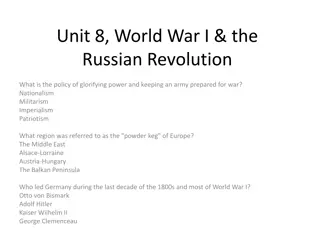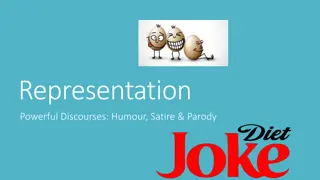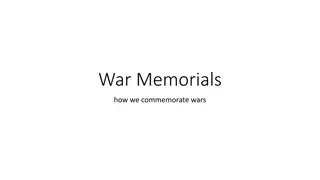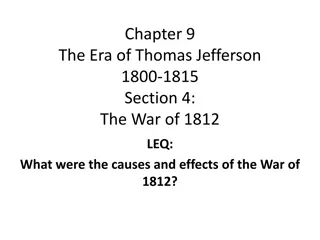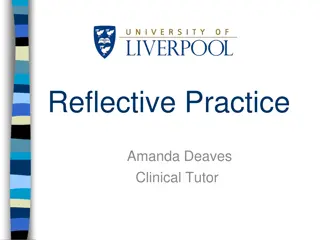Humour in RC Sherriff's Journey's End: A Reflection on War
RC Sherriff's play "Journey's End" delves into the experiences of soldiers during World War I, portraying a mix of fear, camaraderie, and subtle humour as coping mechanisms. The use of humour, particularly through character interactions, provides relief from the harsh realities of war and adds a human touch to the narrative. Sherriff's creation of a homely atmosphere amidst the chaos of battle highlights the characters' resilience and camaraderie. The subtle nuances of humour throughout the play serve as a reminder of the soldiers' ability to find lightness in the darkest of times, showcasing their strength in adversity.
Download Presentation

Please find below an Image/Link to download the presentation.
The content on the website is provided AS IS for your information and personal use only. It may not be sold, licensed, or shared on other websites without obtaining consent from the author.If you encounter any issues during the download, it is possible that the publisher has removed the file from their server.
You are allowed to download the files provided on this website for personal or commercial use, subject to the condition that they are used lawfully. All files are the property of their respective owners.
The content on the website is provided AS IS for your information and personal use only. It may not be sold, licensed, or shared on other websites without obtaining consent from the author.
E N D
Presentation Transcript
JOURNEYS END: HUMOUR AND By Georgia G, Tanisha and Taylor CONTEXT
1915- Sherriff volunteered as a new recruit and by 1918 he had risen to the rank of captain. In 1917, he almost died suffering from severe injuries in a now famous, terrible battle near to the town of Passchendaele in southern Belgium. He spent just over a month in hospital before returning to fight once more. The theme of Journey s End touched the heart and minds of its audiences by expressing the fear that never went away through the characters. Sherriff has written this play from his own experiences. He has been able to create a fiction book seem realistic and explores the emotions through different characters because the no 2 characters feel the same about the war. They all have different insights.
HUMOUR Hardy and Osborne have an exchange at the start, where the men were frightfully annoyed that their dugout had been blown to bits. Humour is used as well when they describe dirt landing in their tea: There s nothing worse than dirt in your tea . The use of humour allows the men to deal with the horror of war. Cheero. Excuse my sock, wont you ? Certainly. It s a nice-looking sock. If you promise not to tell anyone what a blasted funk I am. (with a little laugh): No Splendid! Now go and have ten minutes rest and a smoke then we ll go up together and hold each other s hands and jump every time a rat squeaks
HUMOUR Very early on, during Hardy s conversation with Osborne demonstrate the need for relief from everyday horrors of the war. Most of the humour in the play is based around Mason. He has witty responses regarding his cooking, the quality of the food he has made or his standards of hygiene gives the play a more homely quality and helped to relieve the continually building the tension. The use of humour also helps define the surroundings and the men's state of mind. Sherriff's use of humour, is at times, more subtle- for example, near the end of the play, just before the attack when trotter is singing in his dugout Stanhope throws him a few coins as though he were a street performer.
HUMOUR We can also appreciate capacity through humour to triumph in the face of adversity not to give in to their fears and apprehensions but to rise above them. The realistic use of humour makes the whole situation more human which in turn draws the audience into the world of these men forcing us to care even more about their survival. The humour helps in the creation of the atmosphere of camaraderie which is what has kept the men going in the dugout.
CONTEXT Sherriff wrote Journey s End in 1928, ten years after the end of World War I. His first audiences would have either fought in the war or lost someone close. This means that the thoughts and feelings felt by those in this time would have been different to the audience 100 years on. R.C Sherriff makes his characters use very deliberately controlled language. This reflects the British stiff upper lip , but also suggests how the men come to treat an abnormal way. Their use of understatement shows how normal the war has become. Sherriff uses a variety of emotions, one of which being fear, to show the audiences what the men had to go through. Sherriff uses words in the book to describe the wait as Eerie silence which was worse than the bombs and attacks that were going off in the background.
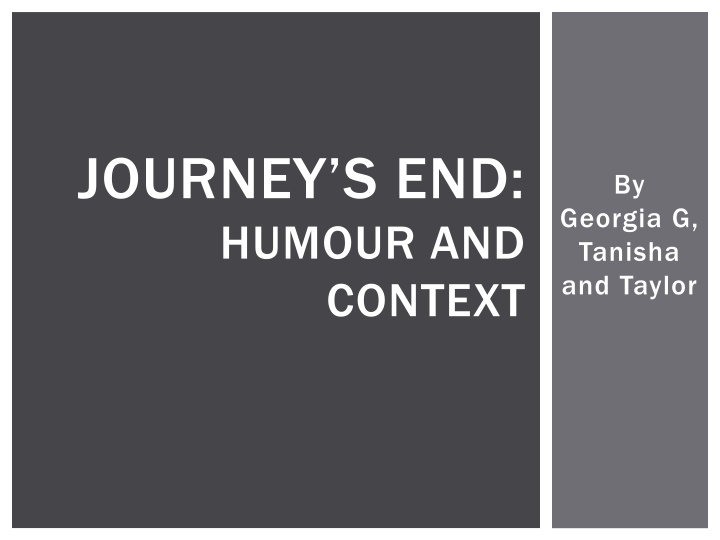

![❤[PDF]⚡ Civil War Talks: Further Reminiscences of George S. Bernard and His Fel](/thumb/20551/pdf-civil-war-talks-further-reminiscences-of-george-s-bernard-and-his-fel.jpg)


